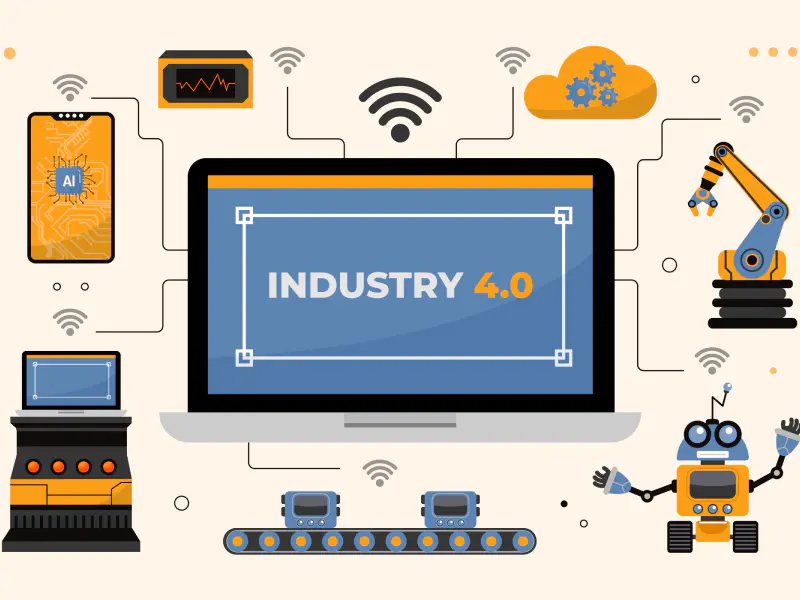
Programmable Logic Controllers (PLC) and Distributed Control Systems (DCS) are two distinguished technologies widely utilized in industrial automation. A PLC is a compact and versatile device used to control processes in industrial environments. It is widely known for performing or managing motor control, relay switching, and other discrete automation tasks. PLC uses specialized programming languages to perform a variety of operations within industrial settings.
Distributed Control System (DCS) is more complex that manages and monitors enormous processes through a network of distributed controllers. These controllers are spread across the system, each managing a specific segment of the process, while a central computer coordinates their activities. This article discusses the important differences between PLC and DCS so that the reader understands the unique features and applications of each.
The key differences are:
| PLC | DCS | |
|---|---|---|
| Architecture | Have a centralized architecture with a single processing unit. | Employs a distributed architecture with multiple processing units. |
| Response Time | Designed for fast response times, typically within one-tenth of a second. | Have slower response times compared to PLC. |
| Scalability | Limited scalability. | Highly scalable as it can accommodate new equipment, process enhancements, and data integration. |
| Programming | Relatively simple as it uses ladder logic or function block diagrams. | Uses more complex programming languages. |
| Data Management | Limited data logging and analysis capabilities. | Offer advanced data management capabilities, including integrated historians, advanced trending, and detailed analysis. |
| Operator Interface | Basic HMI capabilities, often limited to a single screen. | Sophisticated operator interface with multi-screen support, alarm management, and enhanced visualization for complex processes. |
| System Integration | Generally used as standalone systems and are not easily integrated with other systems. | Designed for seamless system integration, allowing easy connectivity with systems like SCADA, ERP, and maintenance management systems for more comprehensive process control. |
| System Security | Generally offer basic security features. | Typically include advanced cybersecurity features. |
Cognidel is widely recognized as the best industrial automation training institute, offering top-notch PLC training in Bangalore. With a focus on practical learning, the institute provides comprehensive courses that cover key concepts of industrial automation, including Programmable Logic Controllers (PLCs), SCADA, and process control systems. With state-of-the-art training facilities and guidance from experienced industry professionals, the institute ensures hands-on experience and real-world knowledge for its students to succeed in automation.
In addition to its advanced training programs, Cognidel specializes in offering detailed PLC programming courses in Bangalore. These courses are designed to teach essential programming skills such as ladder logic, function block diagrams, and structured text, enabling students to design and troubleshoot automation systems effectively.